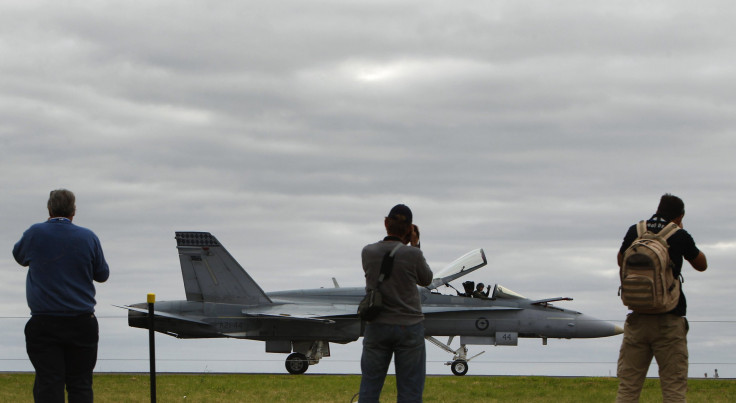Kurdish Forces Push ISIS Militants Back From Sinjar With Help From Australian Airstrikes

Airstrikes by Australian F-18F Super Hornet fighter-bombers helped push back Islamic State militants from Mount Sinjar in northern Iraq Monday, as Kurdish forces fought to regain control of the area. Mount Sinjar has seen intense fighting between the Kurdish peshmerga and Islamic State group forces since the extremist group threatened in August to kill the Yazidi minority population that had taken refuge there.
Tens of thousands of Yazidis fled the area to safety with U.S. support this summer, but several thousand stayed, unable to leave because ISIS had surrounded the mountain. But on Monday Kurdish forces announced that they had finally retaken the mountain and secured the area from ISIS militants. Australian airstrikes supported the offensive throughout the weekend.
Australia pledged its commitment to the U.S.-led coalition to fight ISIS in Iraq and Syria in October. Before that announcement, Australian planes were already aidropping humanitarian aid to Yazidis trapped on the mountain.
Australian news outlets reported Monday that the airstrikes on Sinjar were planned to hit ISIS outposts, weaponry and vehicles. Australian pilots have contributed more than 180 sorties since operations began in October, The Guardian reported over the weekend. The first attack by Australian planes took place at the beginning of October when the Super Hornets dropped two 500-pound GBU-12 laser-guided bombs on ISIS targets. Since then, more than 100 bombs and missiles have been fired at 44 targets by Australian pilots.
According to the Royal Australian Air Force website, the Super Hornet can "undertake air interception, air combat, close air support of ground troops and interdiction of enemy supply lines including shipping." The plane is manufactured by Boeing.
Australian ground forces are also helping the U.S. effort to train and assist Iraqi security forces to fight ISIS. So far about 200 Australian troops have landed in Iraq to help the program.
© Copyright IBTimes 2024. All rights reserved.











